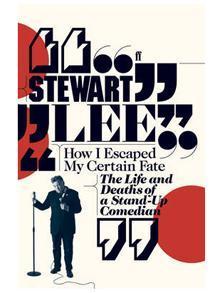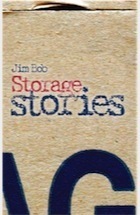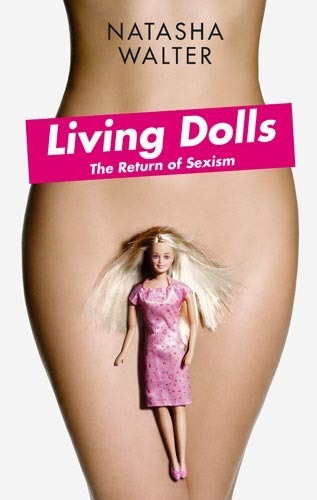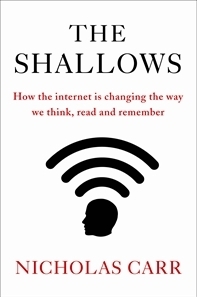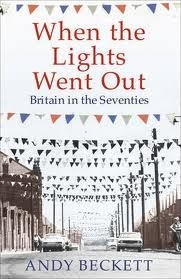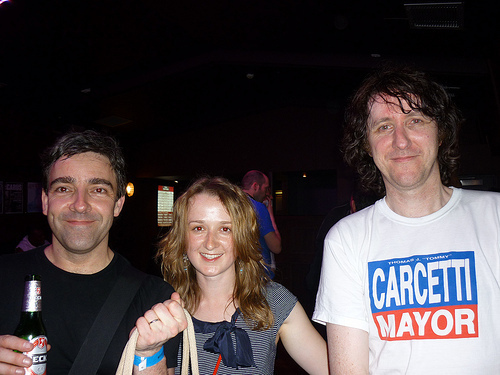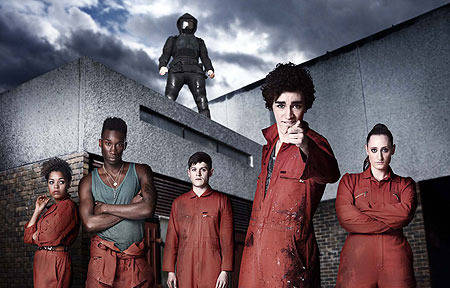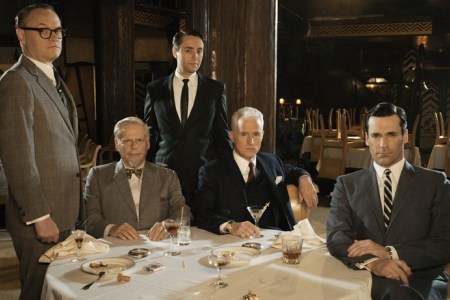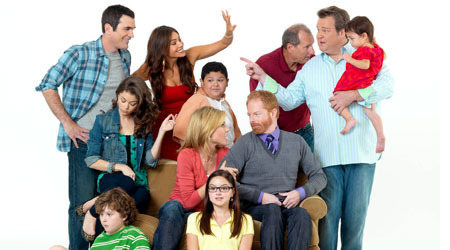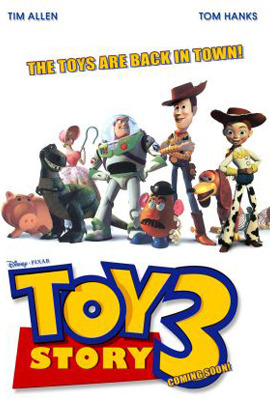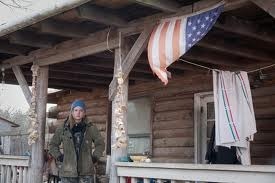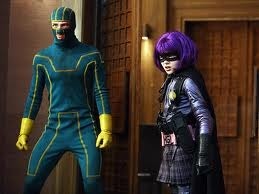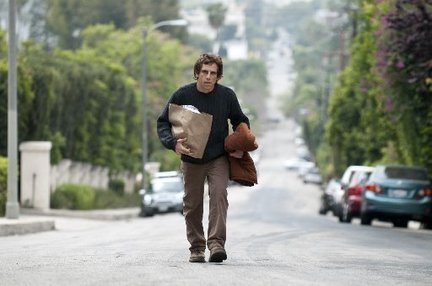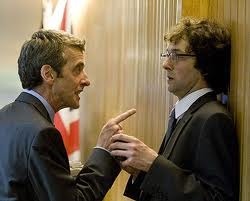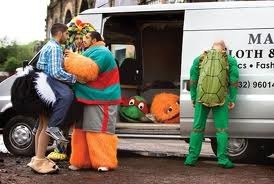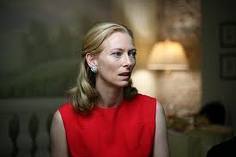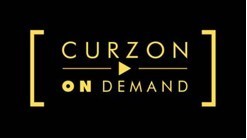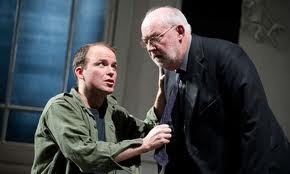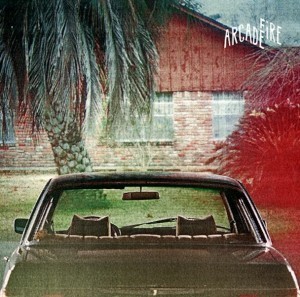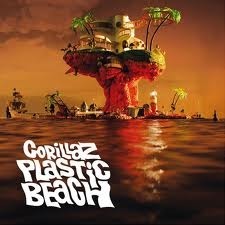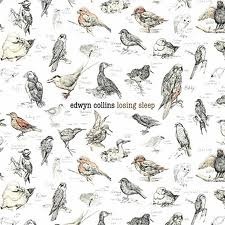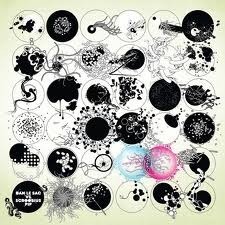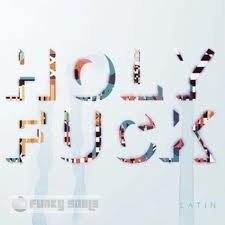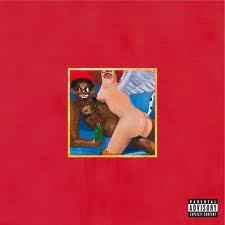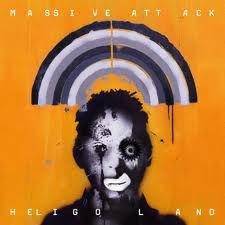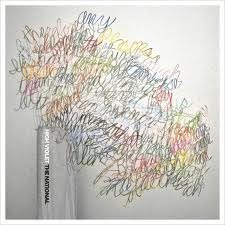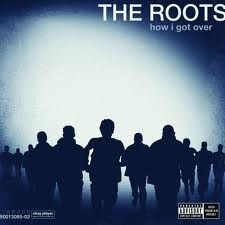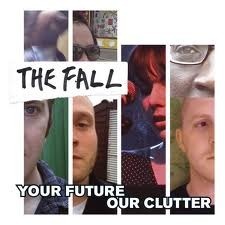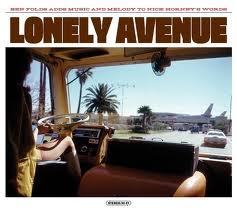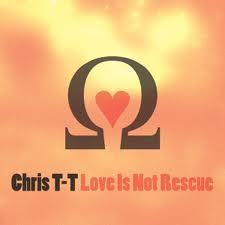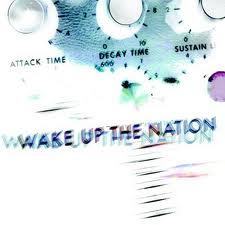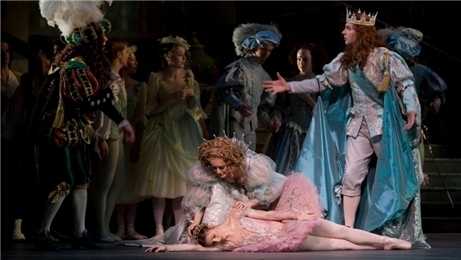Andrew Collins's Blog, page 62
December 29, 2010
Breakfastballs
Bags o' fun on 6 Music Breakfast this morning, two weeks into my two-and-a-half-week Christmas and New Year stint while Shaun Keaveny sits around being a new dad: Mat Ricardo, gentleman juggler, came in to do some live juggling on the radio. (It was my stupid idea.) We did some talking as well, of course, but through the magic of he and I still conversing while he balanced a tray on his face and removed a tablecloth from under a cup and saucer, it was, I believe, Sony Award-winning audio entertainment. Here are the pictures anyway. It's been a blast doing Shaun's show these past couple of weeks. It's amazing how quickly your body can adjust to getting up at 5am and going to bed at 9pm. I'll be honest, I wouldn't want to do it every day, and I take my hat off to those who do. If you want to see Mat doing his signature trick – uniquely, putting the tablecloth back on the table without knocking anything off – you should go forthwith to this clip on YouTube of a Dutch TV show he did a couple of years ago. It may blow your mind; watch it to the end.
For details of Mat's work, and his forthcoming gigs, go here.








December 20, 2010
And on your right …
Thanks to Dan Bullock, who took this picture of the currently disused old B&Q building car park, a familiar sight to anyone who uses the District Line into Wimbledon in South London, whose facing wall has been a graffiti hotspot ever since the DIY store upped sticks and went to New Malden. You have to admire both the graphic style and the Inbetweeners-style wit of this message, which went up at the end of last week, and has been raising smiles ever since – and you can't put a price on that in ROAD RAIL SNOW HELL CHAOS STANDSTILL BRITAIN.
Dan is a photographer and his website is here.








December 19, 2010
2010: Other
Top 5 Books
1. How I Escaped My Certain Fate Stewart Lee (Faber) Quite simply one of the best books about comedy – the history of, the mechanics of, the craft of – I have ever read. Do not approach it as a memoir, and you will not be disappointed. It is that, but only in disguise. And if the idea of a man dissecting and annotating five of his own routines, in painstaking detail, with candour and self-loathing, does not appeal, my guess is that you are not a Stewart Lee fan. Michael Mcintyre could not, would not, and would never wish to, do this to himself and his work. Rarely has a grown man saying, "Go away!" been so welcoming.
2. The Shallows Nicholas Carr (Atlantic) Must be coming out in paperback in 2011. Definitely worth a read if, like me, you worry that the basic skills of reading and concentrating are being eroded by clicking and scrolling.
3. Storage Stories Jim Bob (Ten Forty) You'll have to forget that Jim is a friend of mine. If I didn't like his first novel, I wouldn't put it in my Top 5. I really like it.
4. When The Lights Went Out: Britain In The Seventies Andy Beckett (Faber) Haven't finished this yet, but I am really loving it. For the record, it was first published in 2009, although the paperback came out in 2010. What the heck? I'm actually reading a pre-publication proof which Faber must have sent me ages ago, because of course I love the seventies, but I only picked it up a few weeks ago. I'm currently reading, and enjoying The Kennedys: An American Drama by Peter Collier and David Horowitz, which was first published in 1984. It sort of doesn't matter, does it? I've been cutting back on spending this year, and have so many books I've never read, it seems profligate in the extreme to buy more.
5. Living Dolls: The Return Of Sexism Natasha Walter (Virago) This isn't a perfect book – in that, as the mother of a young daughter who likes dressing as a princess, Walter seems as much part of the problem as the cure – but it got me thinking, and reminded me that I am a feminist.
Top 5 Live Events
Note: I have pretty much stopped going to live gigs. It just doesn't appeal. Oddly though, I saw Jim Bob twice this year, at the Garage in Islington, where I supported him (what a disaster that was!), and at the Bull & Gate in Kentish Town. I sort of love the fact that an artist whom I first started seeing on the London indie circuit in the late 80s has taken me back there this year, just when I least expected it. I was grateful – however ungrateful I seem – to see his support acts on those two occasions: Chris T-T and Tim Ten Yen. What I'm driving at here, is that any list of live events that I have been to is pretty random, and presents merely a wonky snapshot of what gets me out of the house when I am quite happy to be in the house. I also present it without irony, in that I realise that if I hadn't been performing this year, I wouldn't have seen any of it really.
1. Assorted, Various venues, Edinburgh Fringe 2010, Edinburgh
Unfair to pick out individuals, as it was the cumulative effect of seeing show after show after show, and the unsettling knowledge that I either already knew the performer or would be having a drink with him/her directly afterwards, that made Edinburgh so memorable. That said, I particularly enjoyed seeing Jeremy Lion Goes Green at the Pleasance, Christ On A Bike at the Assembly Rooms, AIOTM at the Assembly Rooms, Sarah Millican at the Stand, Political Animal at the Stand, Gary Delaney at the Pleasance, Pappy's Fun Club at the Pleasance (a valiant battle with technical woes, which made it all the more triumphant), Tara Flynn at the Gilded Balloon, Gutted: The Musical at the Assembly Rooms, Mat Ricardo at the Three Sisters and Mr B The Gentleman Rhymer at the Three Sisters.
2. Ward and White's Karaoke Circus, Assembly Tent, Edinburgh
Again, I was in this, but it was still one of the most entertaining and unifying nights of comedic variety I have ever encountered, and I've been to a few Karaoke Circuses in my time. It was a combination of the late hour, the venue size, the venue type, the overflow of celebrities just hanging around in the audience, some particularly offensive loudness from certain quarters, and an augmented band at the top of their game. Thrilling. If you were there, you will concur.
3. Hamlet, National Theatre via Curzon Mayfair, London
I don't do theatre. This made me wonder why. Rory Kinnear casually electrifying.
4. Jim Bob, Bull & Gate, London
OK, so that's somebody who's a friend in my Top 5 Books and my Top 5 Live Events. Deal with it. After sterling and appropriate support from Chris T-T, then a car crash courtesy of me, Jim made the evening his own, combining book readings, Carter songs and solo material, and a climactic bubble display by Mr Spoons.
5. Greg Davies: Firing Cheeseballs At A Dog, Bloomsbury Theatre, London
Missed this at Edinburgh, happy to have caught it here. This is a man, playing himself, set to eclipse both We Are Klang and The Inbetweeners. Watch him go.
Top 20 TV Programmes
Note: not as much of a vintage year as 2009, during which I devoured the whole of Battlestar Galactica and House, and was able to hail Breaking Bad as one of the great shows of the year. We're still waiting for Season 3 of Breaking Bad. It has not been replaced in my house. I found myself bailing out of a lot of long-form US imports this year, and not just the obvious duds like The Event - I also found myself ultimately ungripped by The Walking Dead and Sons Of Anarchy, which are both clearly quality products, they just didn't grab my insides, which I'm afraid I now expect. However, although missing out on the number one spot, the Americans do still dominate my schedules. Long may they continue to do so. And long may British telly keep trying to achieve their greatness.
1. Misfits, E4
2. Mad Men, BBC4
3. The Trip, BBC2
4. Modern Family, Sky1
5. 30 Rock, Comedy Central
6. The Inbetweeners, E4
7. House, Sky1
8. Five Days, BBC1
9. This Is England '86, C4
10. The Art Of Germany, BBC4
11. Jamie's 30 Minute Meals, C4
12. Southland, More4
13. Accused, BBC1
14. Caprica, Sky1
15. The Pacific, Sky Movies
16. The Good Wife, More4
17. V, Syfy
18. Californication, Fiver
19. Masterchef/Celebrity Masterchef, BBC1
20. 24, Sky1
Feel free to inform me that I've missed something obvious. I will have. It's not an exact science.








December 17, 2010
2010: Films
I'm often asked if it was "a good year" for films. Well, I saw a lot of films this year, and many of them were good – I saw more foreign films than in 2009, thanks to DVDs from Artificial Eye and Optimum, and to the proximity of the new HMV Curzon in Wimbledon, which has just celebrated its first birthday and looks – from where I'm sitting ie. somewhere very comfortable and predominantly free of idiots texting and talking – to be enjoying a steady stream of customers, whether it's for the strategically programmed mainstream studio draws like Harry Potter or Sex & The City 2, or for the more esoteric stuff you simply don't get at the Odeon (the first showing of Of Gods And Men, aka Des hommes et des dieux, one of my films of the year, was pretty much a full house). Long may it continue. Supporters and previous beneficiaries of the UK Film Council might say it was a bad year for British films, but with funding in the hands of the BFI now, even that may seem a storm in an administrative teacup as time passes. Wider cuts across the arts in this country will force people to spend their money more wisely, and creative people will always find a way. That is my glib view.
Although many of my favourite films of 2010 were indeed foreign, with Un Prophète and Des hommes et des dieux at the top, I'm happy to say that a mainstream American studio picture crowns the list: The Social Network. It's a film I rushed back to see for a second time – that says as much about my appreciation of it as the fact that as soon as I'd heard The Suburbs by Arcade Fire, I put it straight back on. Other fine American films included A Single Man, Winter's Bone, Somewhere and Toy Story 3. I have nothing against American films, I just tend to find more nourishment, and a greater number of surprises, in non-American work. A film like Leaving, or Partir, by Catherine Corsini, could simply not be made outside of France, either literally, or emotionally and thematically. Clearly, I haven't seen every significant film released in 2010 (I don't get invited to foreign film festivals like other critics, and I was too busy to attend the London Film Festival and wear a hole in my accreditation), and so I haven't seen Uncle Boonmee, or Aurora, or Film Socialisme, or Police, Adjective, to name but four that I think I'd like. But I've done pretty well, so this is a fairly reliable list. I know I didn't like Robin Hood, Sherlock Holmes or Invictus, and I was hugely disappointed by The Ghost and Shutter Island, because I expected so much more from their feted directors. Two of my beloved French films annoyed me: Gainsbourg and Father Of My Children, which proves I am not xenophobic against my own kind. And you know how I feel about Inception, surely the most lavish set of emperor's new clothes in recent memory. It was meanwhile heartening to see two really excellent – world-class – British sociopolitical comedies, In The Loop and Four Lions, both products of writers, performers, directors and producers honed in television and reasonably new to cinema, which gives hope to us all.
1. The Social Network (David Fincher)
2. Un Prophete (Jacques Audiard)
3. Of Gods And Men (Xavier Beauvois)
4. The Secrets In Their Eyes (Juan José Campanella)
5. Winter's Bone (Debra Granik)
6. Somewhere (Sofia Coppola)
7. Leaving (Catherine Corsini)
8. Another Year (Mike Leigh)
9. Four Lions (Chris Morris)
10. Toy Story 3 (Lee Unkrich)
11. Greenberg (Noah Baumbach)
12. I Am Love (Luca Guadagnino)
13. Tetro (Francis Coppola)
14. Kick-Ass (Matthew Vaughn)
15. In The Loop (Armando Iannucci)
16. Lourdes (Jessica Hausner)
17. A Single Man (Tom Ford)
18. The Kids Are All Right (Lisa Cholodenko)
19. The Illusionist (Sylvain Chomet)
20. Capitalism: A Love Story (Michael Moore)
Incidentally, I had a great time at Sex & The City 2, but I know it's not even as good as Sex & The City 1, which wasn't as good as Sex & The City. So it doesn't make the list, but it does hold fond, if tipsy, memories, thanks to time and place.








December 12, 2010
Cold case
I missed this when it finally made the rounds here in August, but it's coming out on DVD on 24 January, so do yourself a favour: The Secret In Their Eyes, or El secreto de sus ojos, is the Argentinian film that won the Best Foreign Language Film Oscar this year, beating critics' faves A Prophet and The White Ribbon. Whether it is superior to those two astonishing films is difficult to say. It's certainly more mainstream than either, and much less self-consciously arty than the latter, but that is not to say it is without artistry, or that being mainstream is a crime; multi-layered, essentially plot-driven, but with plenty to say about its time and its place, it's really, really good, and in places, spectacular. (It was released in Argentina in August 2009, before being whisked off around the international festival circuit and finding distributors beyond South America.)
Co-adapted and directed by Juan José Campanella – who, it turns out, is something of an American-ophile who studied in New York and makes a parallel living directing episodes of some of my favourite US TV shows, like House and 30 Rock – this is very much an Argentinian story, funded by Argentinian and Spanish money, and set largely, in flashback, in the 70s, when Argentina's "Dirty War" sealed the country's status as a police state. Cleverly, it revolves around a single murder, and apparently not a political one, that of a newly married 23-year-old schoolteacher, also raped, whose death haunts a federal counselor played by Campanella's muse Ricardo Darín. He is determined to bring the perpetrator to justice – at first two blameless foreign workers are framed for the crime, an illustration of how corrupt and lacklustre Argentinian justice was at that time – and although this has all the hallmarks of a standard, identikit police procedural coupled with the usual maverick detective whose precarious home life is threatened by his work, the story is told with such visual flourish and careful juggling through timeframes, it never feels pedestrian. Darin even has a female boss he secretly fancies but cannot have (Soledad Villamil), and an alcoholic partner who has to be summoned back from his favourite bar (a brilliant Guillermo Francella, a comedian apparently), but you will not guess how the story unfolds. (I should say that it's based on a novel by Eduardo Sacheri, who co-wrote the screenplay. It certainly has the narrative rigour of a book.)
I love the way Campanella frames a shot, often with a figure in the far right or left of a frame, or partially seen through a doorway. This is a stylish director who generally keeps his tricks reined in. That said, the opening scene of a man (Darin) leaving on a train while a woman (Villamil) stays on the platform is so prettified by ambiguous focussing effects you do wonder if you're watching a perfume advert. Stick with it, though. The sequence is important. There's also another potential stylistic flourish which has to be seen to be believed. I won't ruin it, but it's such an extravagant single tracking shot – which may, or may not be a single tracking shot, but appears to be one – you will feel your breath being taken away. It takes place at what looks like – but may not be – an actual football match and manages to pull off the double: it's amazing to watch, but it is also dictated by plot. Has anyone else seen it? I have been avoiding finding out how he did it, but it may be time to give in.








December 11, 2010
Make an arthouse a home
I'm all too aware that every time I bang on about seeing arthouse or foreign movies I speak from the privileged position of living in London, surrounded by "smaller" cinemas that specialise in showing such delights. But unless you do live in a sizeable town or city, you might not have this kind of access to arthouse fare. Even before the London-based Curzon chain opened up shop in South London a year ago, it was easy enough for me to get to the Curzon Mayfair or Curzon Soho, and even Curzon Richmond is on a Tube line. However, as of this week, I need feel self-conscious or guilty no more, as Curzon have launched an on-demand service. It's called Curzon On Demand, and it's here. From now on, brand new films showing at the Curzon will also be available to download, anywhere in the UK and Ireland, and for the £8 fee, you get to keep it for seven days, and watch it as many times as you like, or watch it in installments. So, for instance, this week you can download In Our Name and On Tour, and watch them in the comfort of your computer. (This is definitely going to jolly me along into hooking my laptop up to the telly, too, which I should have done a long time ago.)








December 10, 2010
Theatre: pass the popcorn
More cross-platform arts. This time, Hamlet, live from the National Theatre, beamed into cinemas, in our case, the Curzon Mayfair. What a superb initiative. I will give you my opinion of Rory Kinnear's Dane in a moment. First, a couple of practical concerns: the Mayfair is a glorious cinema, with a huge, 311-seat main screen, and a more intimate, 103-seat second screen. I saw White Ribbon in Screen One here last year, in the afternoon, and it ensured my experience of the film was about as effective and memorable as it could have been. I also hosted the Lost Q&A here last year, to a packed house of nerds, and the place really buzzes when it's full. When we booked Hamlet, it was showing in Screen One. Unfortunately, in the interim, a charity gala premiere of The King's Speech was booked into Screen One, and Hamlet was bumped into Screen Two.
This was a disappointing outcome for obvious reasons: clearly, they'd sold less than 100 tickets, so we just about fitted into Two, but it was a squeeze, and the picture was smaller. (The projection and sound are up to scratch in Two, but it's self-evidently far less of an "event" in there.) Also, having carefully chosen seats for One – this is not a cheap night out, and you want things to be just so – the computer automatically reassigned them, so I spent far too long at the box office trying to convince the woman behind the counter that the wrong seat numbers were printed on my tickets. In the end, they let us sit wherever we wanted, but this caused unnecessary confusion. Also, because of the gala showing of The King's Speech, with red carpet, barriers, press and people milling about in the lobby in smart coats, the bar was closed, so we couldn't even get a drink beforehand. As you can see, with Hamlet booked as a big, pre-Christmas night out, it was greatly reduced in impact and relaxation.
Oh, and this is not the Curzon's doing, but we were sat next to a party of three adults, a man and two women, who spent the whole of the build-up to the play playing on their BlackBerries, ignoring the pre-show film about the history of Hamlet, which was very interesting. I had to tell them to turn their phones off, as the bright, torch-like screens were in my eyeline. They did so. And then … after Hamlet had started, during the key opening scenes with the ghost of his father, they got them out again. I asked them to put them away, again. They did so, for the duration this time. What is the point of spending over the odds to see a live theatre production in a cinema and texting people? I can understand it when it's idiot kids who know no better and have paid a few quid to be somewhere that isn't outside, but these were grown adults! (During Act II, they munched from a massive box of popcorn. Yes, I know it's on sale at the cinema, but this was a dramatic play, not a noisy blockbuster. During a knife's edge soliloquy, you don't want to hear the mouse-like rustling of hands going into popcorn and the popcorn being masticated. I put up with it.) Anyway, niggles over.
The production itself was magnificent. I speak as someone who has only seen Hamlet on film, never live, so I may be an unreliable witness – although the notices do seem to be positive – but Rory Kinnear really did make me understand the play for the first time. It is Nick Hytner's production, and much of the appreciation must go in his direction: the decision to set it in a modern police state was very clever, and even Hamlet's soliloquys were attended by shady men in suits with earpieces in, lurking in the dark. We get a recording device in a bible, paperwork being pushed across desks, camera crews filming Fontibras at the front … on a mostly bare stage, with lights and other props being moved around by the cast, and much of the action lit by torches and spotlights, and Hamlet's dad's ghost a truly unsettling grey apparition, this is atmospheric stuff indeed. Kinnear gives a smart interpretation of the Prince – an ordinary guy in a hoodie, with a smiley face drawn on his t-shirt to represent his duplicitously, villainous uncle, feigning madness with lots of comic business, that is both funny and disturbing. I noticed that he and David Calder as Polonious, used pauses very effectively, as if they were mouthing the words before saying them; quite a revelation from the more formal Shakespeares I saw as a schoolboy.
We never studied Hamlet, but it amazes me how much of it you just sort of know: the basic plot, the key markers like the gravedigger scene, and the speeches. I can almost recite "To be or not to be," without ever having read the Brodie's Notes. The whole thing made me retroactively despise Kenneth Branagh's frilly and overwrought film version.
It's unusual seeing a play, being performed live, at the cinema, with crowd murmuring beforehand, and Emma Freud popping up at the beginning and the end to top and tail it (this was being beamed not just around the UK, but across the world), but, as with Sleeping Beauty, there are advantages to close-ups you would never see from Row G of the National, and to – very sparing – camera cuts, which help to block out the action. I'm sure theatre purists would say it's a poor substitute, but I am not one. I saw David Hare's Stuff Happens at the National in 2004, and was impressed by it – another production on a bare stage with minimal scenery – but I don't go to the theatre often, unless it is to see ballet or a musical, which I feel are better value for money! I feel rather privileged to have seen Kinnear, and Calder, and Clare Higgins, and Patrick Malahide, fretting and strutting while I sat in a cinema in Mayfair, and other people sat in the Brooklyn Academy of Music, and others again in the Coolidge Corner Theater in Boston, and elsewhere. Yes, we clapped at the end!
Worth checking out NT Live for future events of this nature. It's a top idea. Just make sure you see don't sit next to popcorn-munching, texting fuckwits. (Of course, if it had been in Screen One, as advertised, we could have easily moved, but in Two, we were trapped.)
Oh, and I saw Colin Firth on his way into the toilets as I left. One advantage to sharing the cinema was a charity gala.








December 8, 2010
2010: LPs
Let's be clear about this. My criteria for what constitutes a great album has not changed since I was a teenager: it's an album I want to listen to again and again. I wonder if my increasing failure to capture this in the 21st century is a symptom of my advancing years? No, it doesn't compute, because when I do find an album that's great I still find myself listening to it again and again and again. It's plausible that I am becoming fussier in my forties, but this does not stop me loving the records that I love. Nor am I declaring the album a dead artform when I say that, again increasingly, I find myself enjoying one-off songs, or "tracks", more than I do complete albums.
In the past, and I mean the distant past of the 70s, 80s and early 90s, if I fell for a song, it usually led to a more profound relationship with the parent album. This happens less now. Clearly, what follows is not only a personal list in terms of taste, it's a list based upon what I've heard, which is, necessarily, not everything. Like the Pope, I am fallible. However, working at 6 Music, and reviewing for Word means that most albums of critical note pass across my desk, and frankly, if I'm not paying attention at track 3, unless I'm reviewing, I take the disc out and put the next one in.
When I heard the first bars of The Psychedelic Furs by The Psychedelic Furs, or It Takes A Nation Of Millions, or This Nation's Saving Grace, or even, from before my time, Dark Side Of The Moon, Diamond Dogs, There's A Riot Goin' On, Let It Bleed or Freewheelin', I was hooked in … and haven't stopped playing these albums yet. Arcade Fire's The Suburbs had this exact same effect on me in 2010, as did the others on this list. I'm relieved that this can still happen to me. But disappointed that it doesn't happen so often. Feel free to leave comments demanding why your favourite album isn't on my list, but I'll pre-empt these with the answer: either I haven't heard the album, or I didn't get through it, or I never came back to listen to it again. I've put them in order of preference, but frankly, having battled to fill up a Top 10, and now finding myself with a Top 13, they're all important. And a hello to Deerhunter's Halcyon Digest, which I tried listening to on Spotify, but my wi-fi kept cutting out, and to The Defamation Of Strickland Banks by Plan B, which, again, I have only belatedly invested in.
ARCADE FIRE The Suburbs
DAN LE SAC VS SCROOBIUS PIP The Logic Of Chance
HOLY FUCK Latin
MASSIVE ATTACK Heligoland
KANYE WEST My Beautiful Dark Twisted Fantasy
EDWYN COLLINS Losing Sleep
GORILLAZ Plastic Beach
THE FALL Your Nation Our Clutter
THE NATIONAL High Violet
THE ROOTS How I Got Over
BEN FOLDS and NICK HORNBY Lonely Avenue
CHRIS T-T Love Is Not Rescue
PAUL WELLER Wake Up The Nation
More Top 13s to follow. I shall probably do "tracks" next. I look forward to hearing about your favourites. There is no definitive list.








Tight night
Thanks to a venture called More2Screen, last night I went to see a ballet at the cinema. The Royal Ballet performing Tchaikovsky's Sleeping Beauty, since you ask, recorded at the Royal Opera House in 2006 and projected on the screen at the Curzon. The idea is that rather than stumping up West End prices, or indeed travelling to London, or New York, you can see theatre, ballet and opera at your local cinema (and More2Screen seem to run these events up and down the country, from Altrincham to Wolverhampton), sometimes filmed previously, sometimes bang up to date, such as Danny Boyle's Frankenstein, or Derek Jacobi's Lear at the Donmar, showing in the new year. I guess individual cinemas charge their own prices, but you're paying for the convenience, and the comfort, and it'll be a lot less than a trip to the West End of London, or to the New York Met!
I enjoyed Sleeping Beauty, or The Sleeping Beauty as it's properly called, first staged in 1890 – but have since realised that, a relative novice, all the ballets I have ever seen have been written by Pyotr Tchaikovsky. Oh, that Russian! My first ever ballet, in 2007, was Swan Lake, reviewed here, which I've seen twice, in two different productions, and my second was The Nutcracker, which, again, I've seen twice, once in traditional format, the other via the fertile imagination of Matthew Bourne. (I also saw my first modern ballet, Michael Clark's Come, Been and Gone, last November, with music by David Bowie, Velvet Underground and Wire, reviewed here.)
I was surprised not to know any of the music from Sleeping Beauty – having been amazed at how much of Swan Lake and The Nutrcacker had seeped osmotically into my consciousness without me knowing about it – but of course the story is familiar. (The music was apparently adapted for Walt Disney's version, but, frankly, I was very young, and I only took notice of singalong songs in Disney cartoons!) Up to now, I've considered Disney's to be the definitive version of Charles Perrault's La belle au bois dormant, but no. The ballet differs from the cartoon in many respects: more fairies, the baddie is not called Malificent and does not turn into a massive dragon, and of course the third act of Uncle Walt's 1959 staging was not dominated by a lengthy wedding feast sequence, in which – no, really – Puss in Boots, Little Red Riding Hood and other fairytale characters turn up to have a dance. Let's be honest, the narrative of any ballet is predicated on a number of excuses for individuals and pairs to have a dance and showboat a bit and soak up some applause. They really milk it in Act Two of Sleeping Beauty, I can tell you. The story's pretty much over half an hour before the curtain falls. But hey, this is dance.
My favourite act was, without a doubt, Act Two: The Vision, in which the prince sees a vision of the sleeping princess Aurora and sets off in a boat that sails across dry ice to her castle, with the Lilac Fairy at the rudder. Even watching it on a big telly, as we ultimately all were, the staging of this sequence was beautiful and very clever. Because it was filmed in 2006, the picture quality wasn't exactly HD, but the sound was crisp and revealing (one of my favourite things about live ballet is the sound their feet make on the woodwork, and much of this was captured, adding to the "live" feel), and – just like watching football on TV – it was pleasant to be able to zoom in and focus on individuals, thanks to camerawork and editing. This meant that we could watch individual sections of the orchestra, too, which is definitely not something you could do if you were at the Royal Opera House.
In all, a cracking way to officially launch Christmas.








December 6, 2010
Praise be
After my reservations about Monsters, it fills my heart with glad tidings to report that a film came out this week that utterly justifies the critical adoration heaped upon it. Of Gods And Men, Des hommes et des dieux, won the Grand Prix at Cannes, so it comes ready packaged as an arthouse hit. It topped the box office for weeks in its native France, and has been put forward as the French entry for Best Foreign Language Film at the forthcoming Oscars; Artificial Eye are distributing it in the UK. I saw it at the Curzon in Wimbledon, where, for some reason, there was only one screening yesterday, and it was, for Wimbledon, packed. This is a lovely sight to see. Of Gods And Men is one of the most affecting and surprising films I've seen all year, right up there with Un Prophete, and straight into my Top 5.
Directed by Xavier Beauvoir, with whose previous work I confess I am unacquainted, this film imagines events leading up to an actual flashpoint which took place in Algeria in 1996, which I won't reveal – as other reviewers have done – because Beauvoir doesn't contextualise it until the last few captions of the film, and knowing the outcome surely spoils the film. (I managed to avoid knowing about it by avoiding Peter Bradshaw's lyrical five-star review in the Guardian until this morning, and, by chance, not having reached Jonathan Romney's intelligent and incisive feature about the film in Sight & Sound, which, again, I caught up with this morning.) What can be safely told is this: the film is set almost exclusively within the walls of a Catholic monastery in a remote Algerian village, where its eight – and later, nine – cowled inhabitants interact harmoniously with the local, largely Muslim population, dispensing medicine and advice, and interacting with their religious rites. Meanwhile, civil war closes in, atrocities are committed outside the holy walls, and Islamic extremists threaten the monks' very existence.
The nine brothers, led by Lambert Wilson's bespectacled, bookish, Lofty-from-EastEnders-like Christian (a pretty decisive name for a monk), face not only a wider religious conflict that goes against the peaceable nature of their faith – Christian is seen reading, and quoting from, the Qur'an, reflecting a deep-seated desire for understanding – but a more immediate threat from a militant group of machine-carrying mountain guerillas, who – in one of the film's most nail-biting scenes – hold the monks at gunpoint, demanding medical care, on Christmas Day, and are talked down by Christian. This makes Of Gods And Men sound like a thriller – as does its rather misleading trailer. It isn't. Much of the screentime is taken up by a sedate, sympathetic depiction of daily life at the monastery – some might regard it as slow, I regard it as compelling and necessary. These are not pious evangelists or missionaries; they have left behind their lives and families to devote themselves to God, and do so by helping the community, despite contrasting and even conflicting faiths. This is a film about a few good men. When they sit around their table, either to break bread, or to have a democratic vote, they resemble the jurors of Twelve Angry Men, except without the prejudices and kneejerk reactions. Plus, the only fate they must decide upon is their own. Do they stay and die, or leave and live? And if they leave, where to? Their old lives? One of them describes going back to his family and feeling like a stranger.
This is a beautiful film. It evocatively captures the simplicity of both monastic life and the life of a subsistence Algerian hill farmer. As a pampered, secular Westerner, you could be forgiven for starting to long for either, so compassionately and engagingly is all this conveyed by Beauvoir and his cinematographer Caroline Champetier, who also capture the passing seasons with great subtlety. Whether the monks are making honey to sell at market, or Michael Lonsdale's Luc is treating a small child's burn with a beatific kiss on the head, or offering spiritual advice on love to another young villager by mischievously hinting at his own pre-monastic experiences, or Olivier Rabourdin's doubt-wracked Christophe is ploughing a recalcitrant patch of earth, these mundane tasks seem to sing with inner peace and honest, self-sufficient labour. The brothers, too, are regularly seen singing praise in the chapel, cloaked in white robes and creating a moving, choral soundtrack for a film with no score. (The actors trained at Cistercian and Gregorian chanting for a month beforehand, as well as living at an abbey for research, and are in fine voice.)
Anyone who's seen Of Gods And Men will surely have been struck by one extraordinary scene, which, without context, is not a spoiler. It sums up everything that is profound, universal and minimalistic about Beauvoir's film: the monks sit around their table and Luc brings out red wine, which they drink, moderately, while listening on a ghetto blaster to the Grand Theme from Tchaikovsky's Swan Lake, whose narrative significance I won't go into, for fear of devaluing the moment when you experience it, as you must. The camera simply pans around their faces, each one of which tells a story, and proves just how keenly this film has been cast. The moist eyes of the eldest brother, Amédée, played by 83-year-old Jacques Herlin, might be tears, or they might be a permanent moist symptom of old age, but they hit the spot. This is pure acting – the very depth of facial expression that Colin Firth was rightly praised for in A Single Man, when he gets "that" phonecall.
As for praise, this film deserves every drop. It's a political and historical film without any heavy-handed contextualising. It exists in a very specific space and at a very specific time (albeit the year is not stated until those final captions and nor is the country named – you can work it out though, from the police commissioner's talk of France's colonial vandalism), and yet conveys timelessness and isolation. This could be any religious conflict in any country at any time. It's a deeply religious film, about men for whom, largely, faith is just that, a concrete belief in a higher power, be it God or Allah, and yet it does not exclude the secular audience. It is possible to empathise with devout radiance without sharing the same beliefs. When the monks join together to chant over the invasive and potentially deadly roar of an army helicopter, it is as much about defiance and togetherness as it is about Christian brotherhood.
I can't wait to see it again.








Andrew Collins's Blog
- Andrew Collins's profile
- 8 followers









